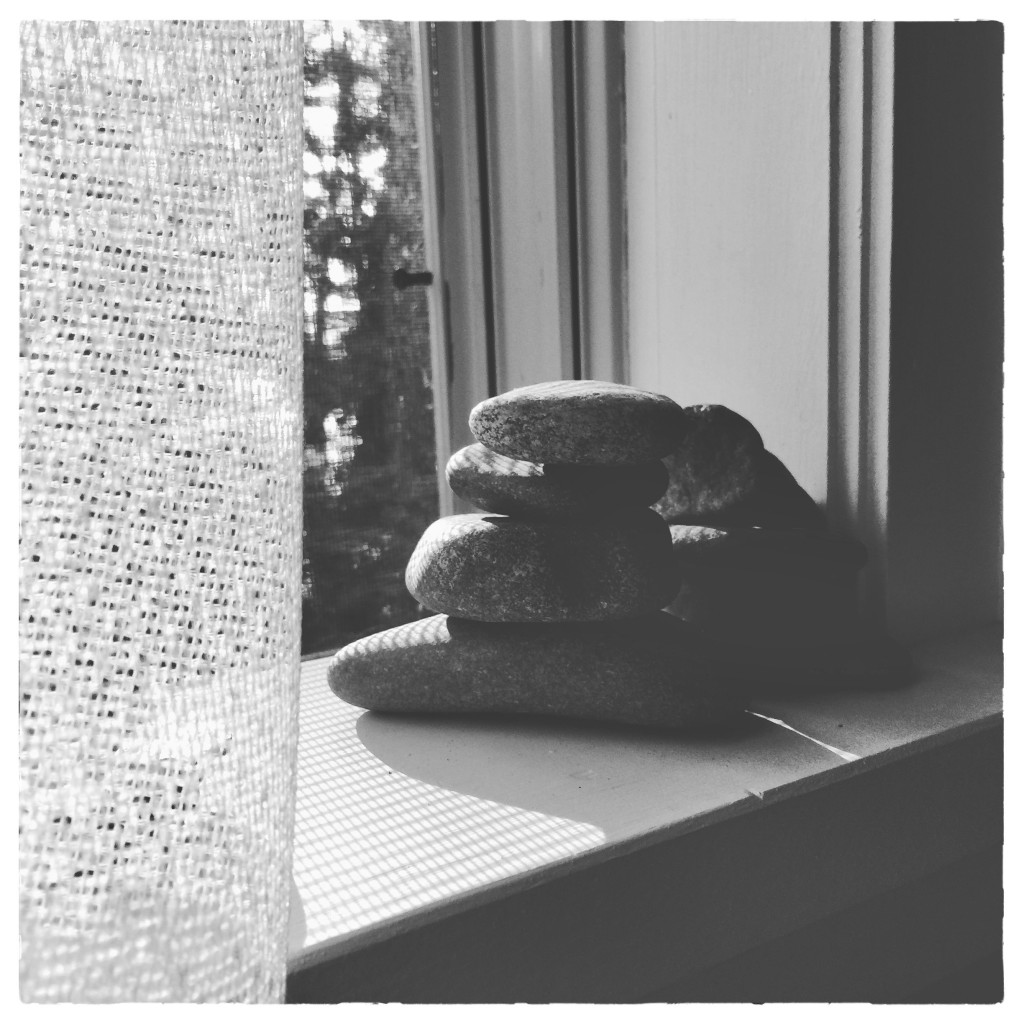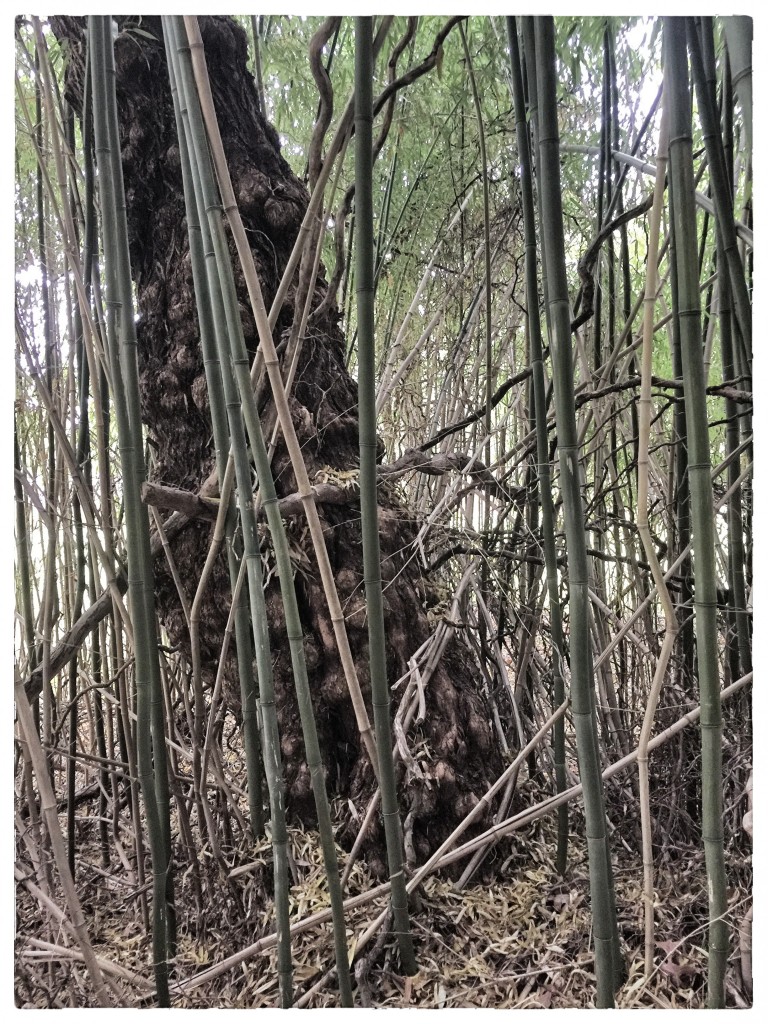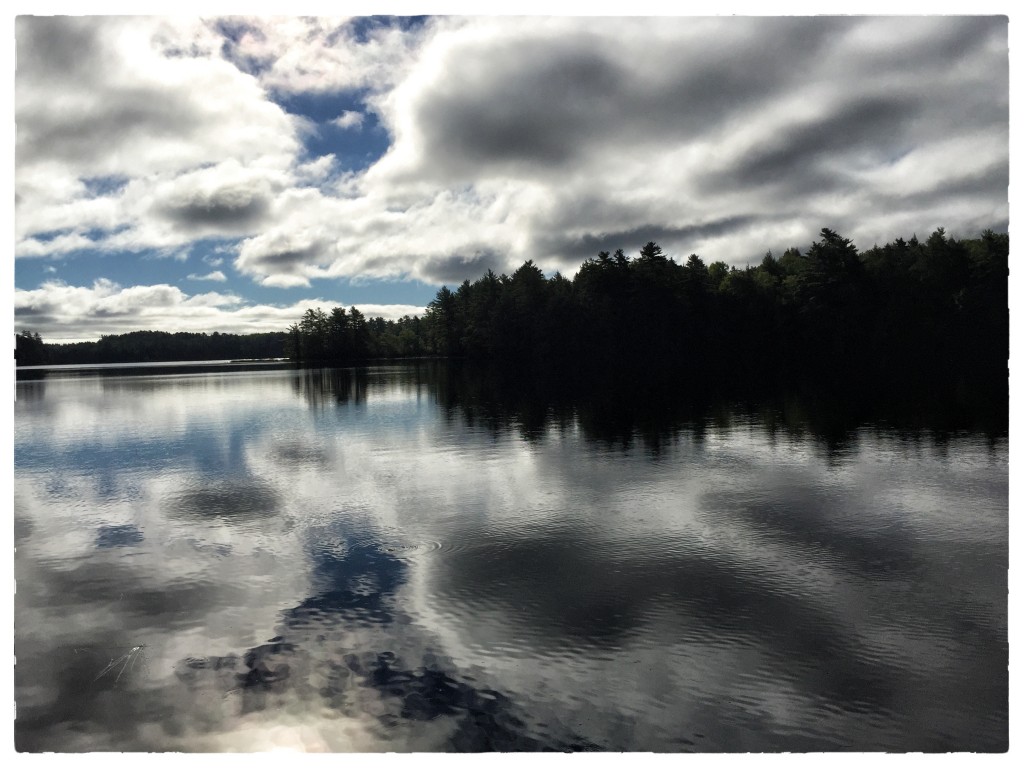Months ago, when the manuscript I’ve been working on was not yet finished, I signed up for a three-day silent meditation retreat at the Garrison Institute, a former Catholic monastery overlooking the Hudson River. I knew the retreat leaders well: Sylvia Boorstein and Sharon Salzberg have been among the foremost teachers and interpreters of the Metta Sutta for decades, and whenever I’m at a loss — whenever my heart cramps with fear and upset, whenever the tinge of angry bile threatens to choke me — I pick their books off my shelf and read them.
Back then, when I signed up and plunked down my shekels and convinced Susan to come with me, I had no idea where I would be once the retreat rolled around: I didn’t know whether my new book would be done, I didn’t know if I’d still be chained to my desk, I didn’t know whether I’d be fighting another in a long line of the lung infections that have plagued me now for three years, I didn’t know whether I’d be drowning under essay and article deadlines. I didn’t know whether I could disentangle myself from my mother’s gravitational orbit for three days without causing her major upset and tumult. (First stop meditation, she said. Next stop Moonies.) This is the quandary we face when we plan ahead: will we or won’t we? Can we or can’t we? Should we or shouldn’t we? Calendars are a leap of faith, a construct of optimism and whim: we will put one foot in front of the other, the clock will tick and time will pass; one hundred dinners will be eaten, one hundred dirty dishes washed, the sun will set, the sun will rise. Everything passes. Impermanence.
It has taken me longer than I expected to write Treyf (which is partly why my presence here has been so infrequent; I’m back, though); when I began making notes for it, a little while after Poor Man’s Feast came out, I was certain that I knew exactly what I wanted it to be: a story of forbidden foods in my life and the lives of my parents and grandparents; A walk through the Talmudic minefields of the culinarily taboo during my childhood in 1960s and 1970s Forest Hills, New York — the days of key parties and fondue and Manson and Son of Sam and the 1977 Yankees; children where I lived grew up very quickly — when my father made Spam and eggs for breakfast just a few hours before my grandmother lit our shabbos candles and we ordered pizza for dinner, half sausage and half not. It was meant to be about changing mores at the table, about the cultural shape-shifting that takes place as the old gives way to the new, and we look back at the past from the vantage point of the future. How much do we cling to; how much do we relinquish without forgetting who we are? The table is our anchor, our silent witness knitting together our stories like Madame DeFarge as the days and months unspool; the table watches us change and grow at the most visceral level.
This is what Treyf was meant to be, and it is. But it also took on a mind of its own. The act of writing, like the act of cooking, forces you to come face to face with fluidity and change. You cede control to the work itself. You stand back and trust that the wormhole your narrative is dragging you down (try and fight it; good luck with that) is lit from within by a force you are acquainted with only in the dead of night, in your deepest dreams; you might not wind up where you planned to be and insofar as the physical process of writing is controlled by you, you very often will end up in another country entirely, as though a total stranger was driving your bus across borders you’ve only ever known to be forbidden.
So Treyf became the story of rule-breaking well beyond the table, and how — if we are going to set our demons free and step into a future that is uniquely ours and that makes us who we are — we have to make a choice between what was, and what is. This, of course, is never easy, because change sucks and most of us hate it and fight it tooth and nail (I know I do). Also, people want you to be who they want you to be; you might have noticed that. They want you to remain who you always were; it’s tidier for everyone if you just stick to the script that they’re familiar with. When you step out of your own comfort zone — when you break the rules — you push other people out of their comfort zones, too. You risk disappointing them. And then, if love is really there, you wish each other well and you grow together into a new and different place. Or you don’t. So the writing of Treyf was complicated. As Faulkner (I’m pretty sure it was Faulkner) once said it whupped me but it ain’t killed me. Although, given the seven very serious lung infections I’ve had since 2013, it came close.
And then Treyf was finished and I looked up and the world had completely changed (again) while I was busy writing; there was Paris and Bataclan and refugees and San Bernardino. There was Trump, and astonishingly frightening, xenophobic threats the likes of which my grandmother used to reminisce about when I was growing up. There were close friends who were suddenly fighting various illnesses, and children of other friends who were undergoing scary surgeries. Everything suddenly seemed much louder and almost blinding with intensity; non-stop violence and the sort of patriotic rage that my great uncle watched unfold on the streets of Vienna in 1938 shrieked and shouted at me, and I could barely make out what it was all saying in the way that a vindaloo can be so incendiary, you can’t actually taste the lamb. To calm myself and turn down the screeching noise, I stepped into our kitchen the way I always do when I’m unsettled and sad, but I forgot to focus on my task: I immolated the chicken and carbonized the steak and turned the pasta into spackle. One night, I boiled my favorite saucepan dry and then black, and set off the smoke alarm; I knocked over three expensive Burgundy glasses that fell one by one like dominoes before shattering into a million shards.
This is what happens when you’re pitched off your center, when you’ve lost your balance, when you stop paying attention because if you don’t, the glare will be too bright, and the stimuli too stimulating. I looked at the calendar hanging on the fridge; months had passed since I signed up for the retreat at Garrison and suddenly, it was just days away. I had so much to do: revisions on Treyf, shopping for the holidays, filing my year-end articles, making donations to my favorite organizations. It would keep: Susan and I packed and went to Garrison and sat in silence for three days; we listened to Sharon and Sylvia and read the Metta Sutta.
We watched the sun rise and set and rise and set over the Hudson the way it has forever, and the way it always will; we put one foot in front of the other and moved forward with the calendar, into the end of the year.







Thank you, once again, for an enjoyable and thought provoking read.
Happy holidays to you and yours.
Beautiful, Elissa. Just beautiful.
Thank you. x
And to you Sharon. x
Elissa, I’ve missed you. Thank you for writing this. It parallels, in so many ways, what has been going on for me, even though the outward parts look different. Slowing down. Oh, the lung infections! What is it about our lungs, you and me? May the breathing be easy today.
“When you step out of your own comfort zone — when you break the rules — you push other people out of their comfort zones, too.” That was a Godsend today. Thank you.
Thank you–
I’m not sure I’ve ever left a comment but I’ve been reading your words for the past couple of years (we have mutual friends) and I found myself nodding and teary-eyed while reading today. So much has changed in such a short period of time and yes, it is terrifying, heart-hurting, hands-clamped-over-my-ears loud. But these words are a healing balm because they help me to realize I am not alone, we are in this together. Happy Holidays Elissa – I don’t know if we’ll ever have the chance to meet, but your words are a beacon in a sometimes bleak world.
Thanks so much, Smith Bites. I hope our paths cross. Happy Holidays to you and yours—
“This is what happens when you’re pitched off your center, when you’ve lost your balance, when you stop paying attention because if you don’t, the glare will be too bright, and the stimuli too stimulating.”
I think the same can be said of wonderful things that are happening in your life too, when you can’t believe that they are really happening, and that if you look too closely they will just evaporate. Thanks for providing me with a moment to stop and think about why I have had a wonderful, enchanted year, but why I still feel off kilter about it some days Elissa. I hope that the end of this year brings some quiet time where you can find your center again.
Thanks Amy–
What an inspiring piece. Wonderfully written. I begin my one-person writing retreat on my non-fiction book January 3rd while Greg heads to Indiana for his two-week intensive. I look forward to the hermit-like state,yet dread the angst of writing.
Happy you and Susan took this time. Merry holidays, Diane
All will be well. Love to you and Greg x
Another’ beautiful piece, can’t wait to read the book when it comes out. Your words ring so true for me.
May you always taste the lamb in your vindaloo. Peace be with you this season.
I’ve bookmarked your blog for years, and everyday I check to see if (and hope!) there’s a new posting. So I was delighted today to see this new piece; your honesty and insights are so worth the wait. The least I can do is thank you for adding this writing to all that you do. Gracias.
Thank you Karen, and I promise to write more often!
LOVE that.
Have missed your voice and your words. Be well. Looking forward to the new book.
Wow again. You nail it every time. I do believe you speak for all of us at the end of this year that has been filled with such dreadfulness, yet the sun continues to rise and set in all its glory.
Elissa – Thank you…This is a wonderful piece. We’re sharing on Symposium for Professional Food Writers’ facebook. Inspiring. In fact, Green Gulch, a Buddhist center in Mill Valley here in No. California is my go-to place for that silence beyond the already existing peace of the woods of my treehouse in Napa Valley. It does for me what Garrison did for you and Susan. Welcome again to the calm and centered place of you and the word. XOXOXOXO Toni
Namete, very best for the Holidays
Nameste
Thanks Toni– I know Green Gulch very well! And thank you for the share on the Symposium page. Look forward to seeing you soon. xx
Thanks Gale. xx
So well written. Inspiring to me on many levels–thank you. Peace, and here’s to the return of the light.
Your writing is wonderful and deep and touches me on so
many levels. Thanks for expressing so beautifully what
I’ve been thinking about the world.
Seems like your silent retreat couldn’t
have come at a better moment.
Looking forward to reading Treyf. Thanks for another beautiful, thought-provoking post. Im putting those writers on my list.
A group of people in Bethel are coming together to sponsor a refugee family. If you’d like to be involved, shoot me an email please! happy holidays!
Thank you.
Try TriGuard Plus for you lungs. I’ve used it for all sorts of infections/viruses and it works wonders (I have no affiliation – just want to help).
Happy Holidays.
Thanks Andrea. I appreciate the suggestion. I’ve recently been on a “cocktail” of heavy Omega3s, evening primrose, vitamin C, and vitamin D, and so far, so good!
Thank you.
Hi Elissa. I’ve just read your post…and it was one of those rare wonderful surprises that pops up when you are a month behind in reading some of your e-mails — usually it’s a bill I forgot to pay or some deadline I’ve missed! Life does seem increasingly scary, and it is difficult not to get hijacked by panic and despair…which I find knocks the breath and creativity out of me. One of my resolutions for this year is to be excruciatingly selective about what I read online…which is why I’m here. Thank you for your truthful, deep and beautiful writing, I hope you have a healthy year. And, I can’t wait to read Treyf!
Thank you so very much Ilana–Wishing you a wonderful year. Best. E